Download our Free Guide:
Senior Living Explained
Learn what different types of senior living care are available and which one best fits your needs now and in the future.

.jpg)
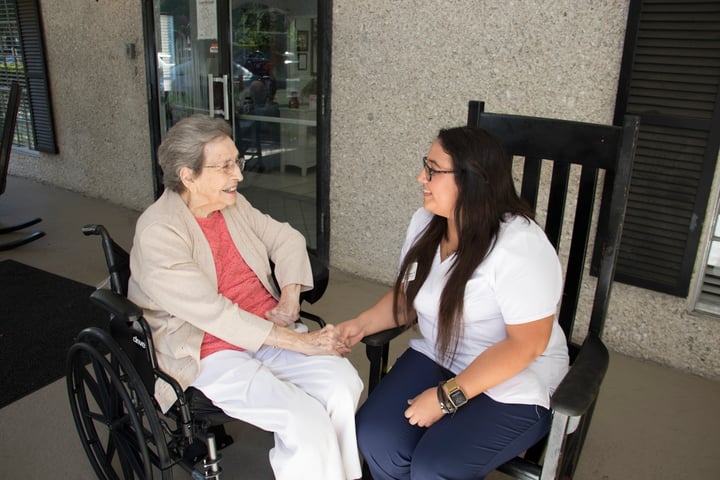
There is no tougher job than serving as someone’s caregiver. And when the person you’re helping is a loved one, your close relationship can make the “job” even more stressful. It’s so hard to see your aging Mom or Dad struggle. And it’s all too easy to feel exhausted, overwhelmed and isolated as you try to help. Yet there are more than 34 million unpaid caregivers in the US responsible for assisting adults 50 or older. Almost 16 million of them care for someone who has Alzheimer’s or another type of dementia.
Caregiver support groups can help, in many ways
Finally, someone you can talk to – someone who won’t judge you or think you’re overreacting to the everyday difficulties of caregiving. In a support group, you are surrounded with people who completely understand what you’re going through because they’re going through it, too. The highs and lows you’re feeling are perfectly normal, and having that validated can do wonders for your self-image and stress level. This is especially important if your own relatives or friends are less than supportive.
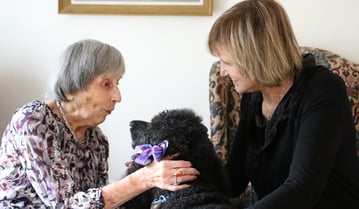 Group meetings are all about you, so they are a time to refresh yourself. A couple of hours away from caregiving duties weekly or monthly will help you feel refreshed and empowered again. Without this opportunity, caregivers often become depressed and can even develop their own physical health problems.
Group meetings are all about you, so they are a time to refresh yourself. A couple of hours away from caregiving duties weekly or monthly will help you feel refreshed and empowered again. Without this opportunity, caregivers often become depressed and can even develop their own physical health problems.
But support groups aren’t only about commiseration, they’re about learning. Typically, meetings are led by a professional such as a social worker. They can recommend helpful new resources to help you manage difficult behaviors, etc. But you’ll get lots of valuable been-there advice from your fellow group members. You can boost your coping and caregiving skills and get a better sense of what to expect as time goes on.
But what do you do in light of the current coronavirus outbreak when people are practicing social distancing? The answer is simple: you take advantage of technology. Phone conversations, online chat groups and videoconferencing are all ways to remain engaged when you can’t physically be with a group of supportive people who understand your struggles. These solutions also apply when your caregiving responsibilities demand all of your time, and even if you live in an isolated rural area.
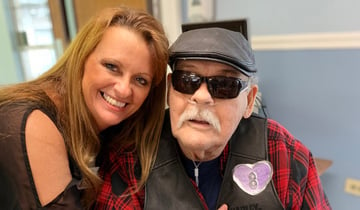 In some ways, though, the most uplifting aspect of participating in a support group is that you’re helping others as they are helping you. You can share your own insights, tips, and encouragement.
In some ways, though, the most uplifting aspect of participating in a support group is that you’re helping others as they are helping you. You can share your own insights, tips, and encouragement.
Right here in South Georgia, we have an excellent resource in the Rosalynn Carter Institute for Caregiving. Rosalyn Carter knows firsthand the demands of being a caregiver, since she took on that role at the young age of 12 when her father became terminally ill. RCI is a veritable gold mine of information. Their overall goal is to support caregivers – both family and professional – through efforts of advocacy, education, research, and service.
Join a group, and give yourself a break
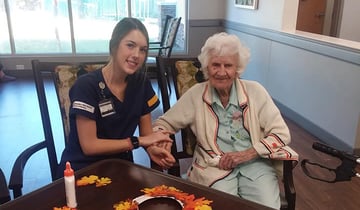 No matter where you live, you can find caregiver groups nearby. Your local Area Agency on Aging will have a list. You can go online to Eldercare Locator and enter your zip code to find the Agency office in your town. You can also hook up with specialized caregiver support groups by contacting:
No matter where you live, you can find caregiver groups nearby. Your local Area Agency on Aging will have a list. You can go online to Eldercare Locator and enter your zip code to find the Agency office in your town. You can also hook up with specialized caregiver support groups by contacting:
There are also online caregiver support groups, which can be an extra blessing if attending regular in-person meetings is difficult for you to manage. Of course, there is no rule that says you can’t join both in-person and online groups. Click here to find caregiver support groups on Facebook.
Perhaps it’s time for Assisted Living or Memory Care
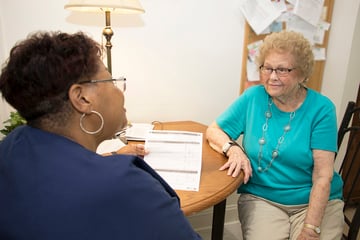 By serving as a caregiver you can help your family member retain some independence and age in place longer, but at some point, it makes more sense for everyone for Mom or Dad to move into Assisted Living or a community specifically designed to care for those with memory loss. At Magnolia Manor, we’re here to help you explore your options so you can make well-informed, loving decisions that ensure the best possible care for your parent(s).
By serving as a caregiver you can help your family member retain some independence and age in place longer, but at some point, it makes more sense for everyone for Mom or Dad to move into Assisted Living or a community specifically designed to care for those with memory loss. At Magnolia Manor, we’re here to help you explore your options so you can make well-informed, loving decisions that ensure the best possible care for your parent(s).
Calling us now at 855.540.5433 to schedule a conversation will give you greater peace of mind. Meanwhile, we encourage you to consider joining a caregiver support group, so you can take good care of yourself as well as your loved one.
Learn what different types of senior living care are available and which one best fits your needs now and in the future.
